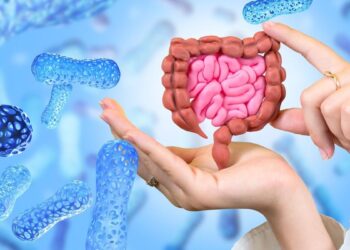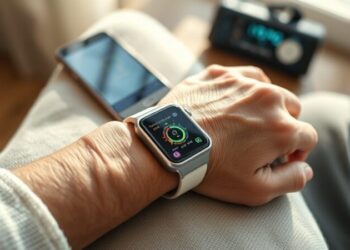In our hyper-competitive, information-saturated world, the quest for a mental edge is more intense than ever. People are seeking ways to improve their focus, memory, and cognitive function to stay ahead in their careers, studies, and daily lives. This pursuit has fueled the rise of nootropics, a class of substances often referred to as “smart drugs” or cognitive enhancers. Nootropics are a diverse group of compounds—from natural herbs to synthetic chemicals—that are believed to improve cognitive performance, particularly executive functions, memory, creativity, or motivation, in healthy individuals. This comprehensive article will delve into the science behind brain health, the most popular and promising nootropics, and the critical considerations of safety, efficacy, and ethics that come with their use. We’ll explore a world where optimizing your brain is no longer a fantasy but a tangible goal.
The Science of Brain Health

To understand how nootropics work, we must first understand the basic mechanics of brain function. The brain is an incredibly complex organ, and its performance is dependent on a delicate balance of chemical messengers, energy pathways, and structural integrity.
A. Neurotransmitters: These are the chemical messengers that transmit signals between neurons in the brain. Key neurotransmitters involved in cognitive function include:
* Acetylcholine: Crucial for memory and learning.
* Dopamine: Linked to motivation, pleasure, and attention.
* GABA (Gamma-Aminobutyric Acid): The primary inhibitory neurotransmitter, responsible for calming the nervous system.
* Serotonin: Affects mood, sleep, and appetite.
Nootropics often work by modulating the levels or activity of these neurotransmitters, thereby influencing cognitive processes.
B. Cerebral Blood Flow: The brain is an energy-hungry organ, consuming a disproportionate amount of the body’s oxygen and glucose. Adequate blood flow to the brain, known as cerebral blood flow (CBF), is essential for delivering these vital nutrients. Some nootropics are believed to work by increasing CBF, ensuring that the brain has the fuel it needs to function optimally.
C. Neural Plasticity: This is the brain’s ability to reorganize itself by forming new neural connections throughout life. It is the foundation of learning and memory. Certain nootropics are thought to enhance neural plasticity, making it easier for the brain to adapt and learn new things.
D. Cellular Energy (Mitochondrial Function): The energy for all brain functions is generated by mitochondria within our brain cells. Nootropics that support mitochondrial function can improve overall brain energy and protect against oxidative stress, which is a major contributor to age-related cognitive decline.
E. Neuroprotection: As we age, our brain cells are susceptible to damage from free radicals and other stressors. Nootropics with antioxidant and anti-inflammatory properties can help protect brain cells from this damage, preserving cognitive function over the long term.
The Most Popular and Promising Nootropics
The world of nootropics is vast and varied, ranging from widely available supplements to prescription medications. Here are some of the most commonly used and scientifically studied nootropics.
A. Natural Nootropics: These are compounds derived from plants, herbs, or other natural sources.
* Caffeine: One of the world’s most popular psychoactive substances. It works by blocking adenosine, a neurotransmitter that makes you feel tired, leading to increased alertness and focus.
* L-Theanine: An amino acid found in green tea. It promotes a state of calm, focused alertness by increasing alpha brain waves and counteracting the jittery effects of caffeine.
* Ginkgo Biloba: An ancient herb known for its potential to improve memory and cognitive speed, likely by increasing blood flow to the brain and acting as an antioxidant.
* Bacopa Monnieri: A traditional Ayurvedic herb that has been shown in some studies to improve memory and reduce anxiety. It is believed to work by enhancing neural communication.
* Creatine: A well-known supplement for athletes, creatine can also improve cognitive function, particularly in tasks that require quick thinking, by supplying energy to the brain.
* Lion’s Mane Mushroom: A medicinal mushroom that has been shown to stimulate the production of Nerve Growth Factor (NGF), which is crucial for the growth and maintenance of neurons.
B. Synthetic Nootropics and Prescription Drugs: These are man-made compounds or existing drugs that are sometimes used off-label for their cognitive-enhancing effects.
* Modafinil: A prescription drug used to treat narcolepsy, it is widely used off-label to promote wakefulness and improve focus and alertness.
* Piracetam: One of the first substances to be called a nootropic. It is believed to improve memory and learning, possibly by enhancing communication between the two hemispheres of the brain. It is not approved for use in the United States but is available in many other countries.
* Noopept: A Russian nootropic that is said to be much more potent than piracetam. It is believed to improve memory and focus, likely by increasing levels of brain-derived neurotrophic factor (BDNF), a protein crucial for neuron survival and growth.
C. Nootropic Stacks: Many people do not take a single nootropic but combine them into a “stack.” A classic example is the combination of caffeine and L-Theanine, which provides the focus of caffeine without the jittery side effects. Stacking is a popular strategy for creating a synergistic effect, but it requires careful research and understanding of how different compounds interact.
Safety, Efficacy, and Ethical Considerations

The world of nootropics is not without its controversies and challenges. As with any substance that affects the brain, there are significant considerations of safety, efficacy, and ethics that must be addressed.
A. Efficacy and Scientific Evidence: The efficacy of many nootropics, especially natural supplements, is still a subject of ongoing research. While some show promising results in preliminary studies, many lack large-scale, placebo-controlled clinical trials to definitively prove their effectiveness in healthy individuals. The results can be highly individual, and what works for one person may not work for another.
B. Safety and Regulation: The nootropic supplement market is largely unregulated. Unlike prescription drugs, which undergo rigorous testing by regulatory bodies like the FDA, supplements can be sold with minimal oversight. This means that the quality and purity of products can vary, and there is a risk of contamination or incorrect dosages. It is crucial to buy from reputable brands and to do your own research.
C. The Risk of Side Effects: While many nootropics are considered safe, they are not without potential side effects. Caffeine, for example, can cause anxiety and sleep disturbances. Synthetic nootropics may have more serious side effects and a greater risk of long-term health consequences. It is always wise to consult a healthcare professional before starting any new nootropic regimen.
D. The Ethical Debate: The use of cognitive enhancers raises profound ethical questions. If nootropics become widely used, could they create an unfair advantage in academics or the workplace? Does the pressure to be “better than human” put an undue burden on individuals? These are difficult questions that society will have to grapple with as these substances become more mainstream.
E. The Importance of a Holistic Approach: Nootropics are not a magic bullet. They are a tool, and they are most effective when used as part of a holistic approach to brain health. No amount of nootropics can compensate for a poor diet, a lack of sleep, chronic stress, or a sedentary lifestyle. The foundation of a healthy brain is still a healthy body.
The Future of Cognitive Enhancement
The future of brain health and cognitive enhancement will be a blend of technology, science, and a personalized approach. As our understanding of the brain deepens, we can expect to see a more targeted and effective approach to mental optimization.
First, personalized nootropics will emerge. By analyzing an individual’s genetic makeup, we will be able to determine their unique needs and their response to different compounds. This will allow for the creation of a highly personalized nootropic stack that is optimized for their specific biology.
Second, AI and wearable technology will play a greater role. Wearables that track brain activity, heart rate variability, and sleep will be used in conjunction with nootropics to provide real-time feedback on their effects. AI will be able to analyze this data to recommend the optimal dosage and timing of a nootropic for a specific task.
Third, the line between food and medicine will blur. The future of brain health will be less about pills and more about a diet rich in neuroprotective foods and supplements. We will see the development of functional foods and beverages that are fortified with nootropic compounds to support cognitive function.
Finally, there will be a greater emphasis on the non-pharmacological aspects of brain health. The importance of mindfulness, exercise, sleep, and social connection will be recognized as the true foundation of a healthy and high-performing brain. Nootropics will be seen as a complement to these foundational habits, not a replacement.
Conclusion
The rise of nootropics is a clear reflection of a society that values cognitive performance and is actively seeking tools to optimize it. From the natural boost of caffeine to the more powerful effects of synthetic compounds, nootropics offer a glimpse into a future where we can take a more active role in enhancing our brain health. By understanding the science behind how our brains work, we can make more informed choices about the substances we choose to consume and how they interact with our unique biology.
However, as we explore this new frontier, it is crucial to proceed with caution and a commitment to responsible use. The ethical questions, the lack of robust regulation in the supplement market, and the importance of a holistic approach cannot be ignored. Nootropics are not a magic bullet; they are a tool that is most effective when used as part of a lifestyle that prioritizes sleep, nutrition, exercise, and mental well-being. The true power of cognitive enhancement lies not in a pill, but in a balanced and intelligent approach to our health. The future of brain health is a future where we are empowered by knowledge, supported by technology, and guided by a profound respect for the incredible organ that is our brain. The journey to a sharper mind begins with a single, thoughtful step.









Discussion about this post